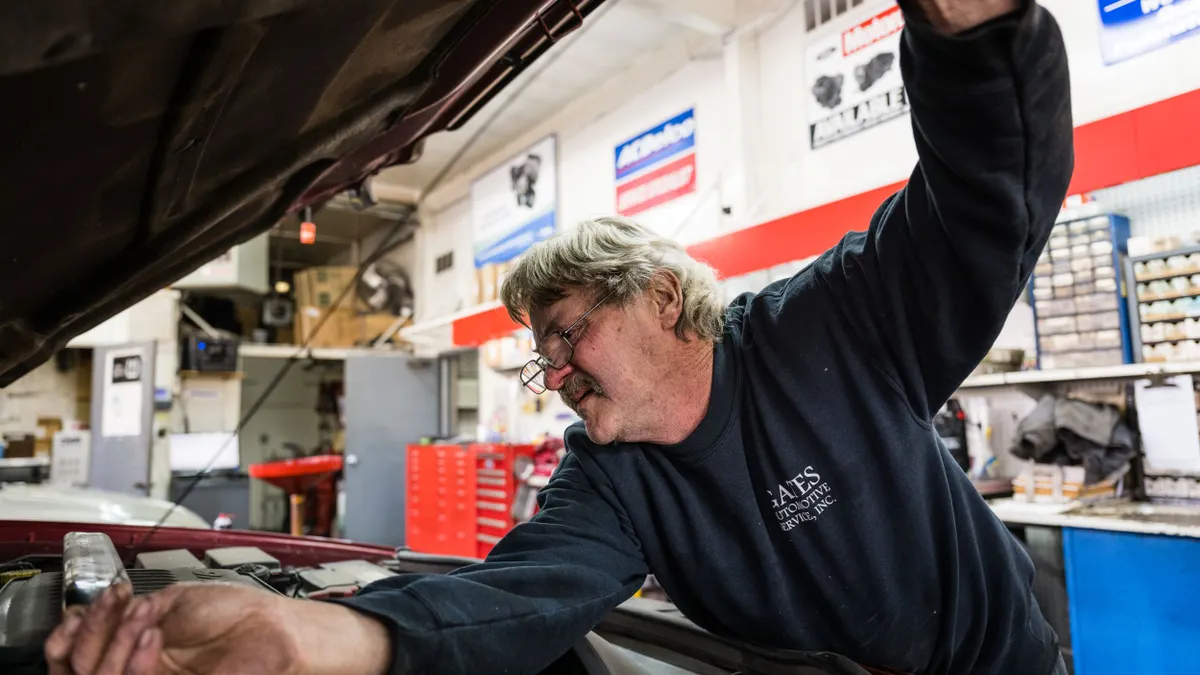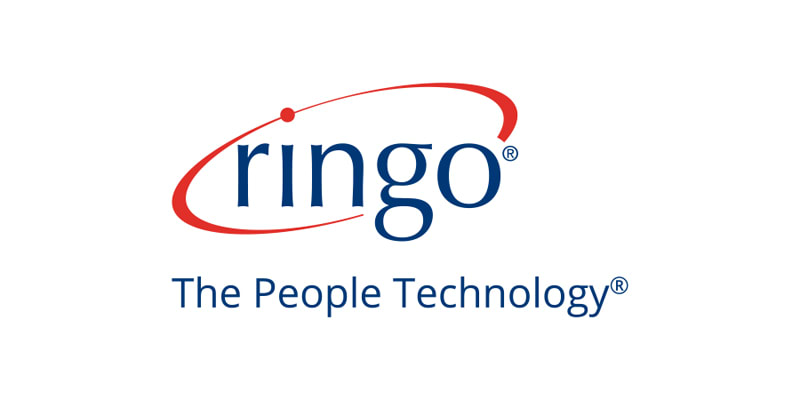Johnson Controls International opened its second Johnson Controls Academy campus near Denver on October 7, complementing a Columbia, Maryland outpost that provides six-week training bootcamps to future frontline technicians, a company spokesperson said. Johnson Controls aims to train 320 technicians annually between the Maryland and Colorado campuses, with the Colorado location set to graduate its first cohort on Nov. 15, the spokesperson said.
Established to onboard new electrical and electronics technicians, Johnson Controls Academy is one of the company’s workforce development initiatives targeting community colleges and technical schools.
The company also announced a renewed slate of grants to 30 North American community colleges through its Johnson Controls Community College Partnership Program. CCPP began in 2021 and is on track to donate up to $15 million to schools through 2026, the company said.
Johnson Controls Academy and CCPP both aim to reduce the burden on Johnson Controls and its clients from the skilled labor shortage that company leaders believe will persist for many years. The U.S. Bureau of Labor Statistics expects about 10,100 job openings per year for electrical and electronics installation and repair technicians on average through 2033.
“We think we need to scale our apprentice workforce by 15% to 20% to offset retirements over the next 5 to 10 years,” said Mike Schade, vice president of human resources for North America, global digital and IT at Johnson Controls.
A direct pathway to employment
The pandemic exacerbated the industry’s talent woes and laid bare the need for an initiative like Johnson Controls Academy, Schade said.
The academy grew out of a preexisting partnership with Lincoln Tech, a for-profit technical college with around two dozen campuses, said Alison Neuman, workforce development program manager for Johnson Controls. The partnership has steadily deepened, with 18 Lincoln Tech campuses set to train students on Johnson Controls fire safety equipment and four campuses on its HVAC equipment by next year, she said.
“When I was in my fire service business, half of my field technicians were Lincoln Tech grads,” John Prusak, general manager for Maryland-Delaware-D.C.-Northern Virginia at Johnson Controls, said in a video highlighting the hands-on training that students receive at Lincoln Tech.
Johnson Controls Academy combines two weeks of online coursework through the JCI Learning Hub with four weeks of onsite, hands-on instruction at Lincoln Tech’s Columbia, Maryland campus, Bryan Feilen, senior partnerships account manager for Lincoln Tech, explained in another video.
The academy’s talent pipeline begins with three Lincoln Tech recruiters working on Johnson Controls’ behalf to identify and build relationships with students at the technical college’s 14 — soon to be 18 — training campuses, Feilen said in an interview. Students who meet the program’s GPA and attendance standards are referred to a Johnson Controls hiring manager, who typically considers three or four candidates for each open position, Feilen added.
Successful candidates are hired at Johnson Controls and graduate from Lincoln Tech before they begin at the academy, Neuman said. That distinguishes Johnson Control Academy from corporate talent development programs that don’t guarantee employment after completion, she said.
“[Academy participants] are full-time employees eligible for benefits before they even get started in the field,” Neuman said.
Each academy cohort has a maximum of 16 interns working alongside four full-time instructors. These instructors hold office hours after class time to answer interns’ questions and reinforce key concepts, Neuman said.
After graduation, interns relocate to Johnson Controls branch locations throughout North America to begin their careers with the company, with about 90% moving to a new city, Feilen said. Over the following year, graduates check in once or twice a month with a career coach who makes sure they’re adjusting well and set up for success, he said.
“If [an employee] comes to us six months after relocation and says they need to move back, we’ll work to keep them, maybe [by placing] them in another role closer to home,” Neuman said.
Thanks in part to this post-graduation support, 92% of Johnson Controls Academy graduates remain with the company after the first year — higher than the companywide retention rate, Neuman said. The process also keeps Johnson Controls’ recruiting demands in check and complements an accelerated training program, producing field-ready employees in a matter of weeks, compared with the more typical six to nine months for new employees who don’t go through the academy, she said.
“Our leaders in the field know that this Lincoln Tech partnership is our pipeline for talent into Johnson Controls,” Neuman said.
Through its WorkforceLinc division, Lincoln Tech also supports workforce development initiatives at other big equipment and service providers, including Tesla, Audi, Hausmann and Peterbilt, according to Feilen.
Expanding the talent pipeline
While the CCPP is not a direct extension of Johnson Controls’ recruitment team, it has a wider reach than Johnson Controls Academy. During the 2023-24 school year, the program served 3,868 students and enabled 655 scholarships at 30 community colleges near Johnson Controls facilities, according to a Sept. 10 news release.
CCPP “engages students from historically underrepresented groups and supports them in preparing for and embarking on career paths in sustainable building practices,” Johnson Controls says. Each participating college receives a grant of up to $100,000 that can be used toward curriculum development, equipment and scholarships, with the potential to renew each grant for up to three years.
Unlike Johnson Controls Academy, CCPP does not provide a direct pathway to employment with Johnson Controls. But every student touched by the CCPP program is eligible for internship and employment opportunities with the company, according to program marketing materials.
CCPP provides direct financial benefits for students as well. Through the program, Johnson Controls has awarded scholarships totaling at least $138,000 to 42 students at Maryland’s Community College of Baltimore County, according to a Johnson Controls brochure. At least 18 scholarship recipients have graduated from CCBC with associate degrees, according to the brochure. More graduations are expected as recipients complete their degree programs, said Jaime Alvarez, department chair of engineering at CCBC.
Additionally, at least 36 CCBC students have received a $150 incentive to participate in CCPP networking events and workshops hosted by CCBC and Johnson Controls, including one where Maryland Governor Wes Moore made an appearance, Alvarez said.
In the Houston area, Johnson Controls has awarded the Lone Star College Foundation more than $300,000 to provide scholarships and supplies to HVAC-R and electrical technology program students at Lone Star College-North Harris, with $100,000 earmarked for the 2024-25 school year, according to LSCF Executive Director Nicole Robinson Gauthier.
So far, the scholarships have benefited 168 Lone Star College students, including 59 first-generation college students and 16 veterans, with 90 going on to earn an associate degree, according to a separate Johnson Controls brochure on the CCPP.
Like Baltimore’s CCBC, Lone Star College Foundation was among the first CCPP cohorts, according to the brochure. Johnson Controls gave the foundation wide latitude to hand out scholarship funds as it saw fit, enabling a “carrot” model that disbursed funds to each student in tranches as they worked toward their degrees, Robinson Gauthier said.
“That allowed us to [say], ‘You did great this semester — come back and we have another scholarship for you,’” Robinson Gauthier said.
Johnson Controls also allowed the Lone Star College Foundation to seed a scholarship endowment with some of its first-year funding, despite not being part of the CCPP original intent, Robinson Gauthier said. Though its spending policy is being worked out, the endowment will likely fund at least one full scholarship or multiple small scholarships, she said.
“No matter what they do [with CCPP funding] moving forward, there will be a perpetual scholarship in Johnson Controls’ name with the same criteria,” she said.
Johnson Controls does not seem to be stepping back from the Lone Star College Foundation or its other CCPP partners as the end of the three-year funding period approaches. Johnson Controls’ senior director of sustainable infrastructure joined the foundation’s board last year, and a Houston-based construction sales manager sits on one of its business advisory committees, Robinson Gauthier said.
“They’ve stuck around [rather than] just writing a big check and stepping back,” she said, echoing similar comments from Alvarez about the company’s long-term commitment to partner with schools.
“These are long term relationships, and it takes a while to get these things to stick,” Johnson Controls’ Schade said. “Our strategy is to be…impactful for the industry as whole, while making sure we get our fair share of talent.”























